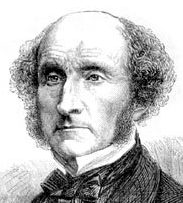The Senate’s President Pro Tempore may not preside at the impeachment trial of a former President of the United States. If a former President may be impeached and tried, only the Chief Justice of the Supreme Court is authorized to preside over the trial. The appointment of the President Pro Tempore to preside in the impeachment trial of the former President violates the Constitution.
In relevant part, Article I provides that “When the President of the United States is tried, the Chief Justice shall preside.” There is no ambiguity of language, which is directive and mandatory. No one other than the Chief Justice of the Supreme Court may preside over the trial of the President. The argument claiming otherwise is unsupportable. Here is why.
If a Former President is Impeachable, It is Because He Was “The President”
Whether a former President of the United States may be impeached and convicted under is the subject of debate. The literal language of the Constitution does not specify whether a former President is covered. But commentators have argued, for a variety of reasons, that former Presidents are covered.
Article 2 of the Constitution states that “The President, Vice President and all civil Officers of the United States, shall be removed from Office on Impeachment for, and Conviction of, Treason, Bribery, or other high Crimes and Misdemeanors.” (emphasis added). On its plain meaning, this language does not include a former President as a person subject to impeachment.
To overcome this failure, the argument favoring inclusion of a former President within the Constitutional term is as follows. Because “the text of the Constitution does not clearly and directly address the proper timing of impeachment, it is necessary to consult history, structure, and precedent to address the question of late impeachment.” (citing here to the 2001 article “The Constitutional Case for the Impeachability of Former Federal Officials…” by Brian Kalt). For our purposes, “late impeachment” means the trial of a person who once was President, but is no longer the President at the time of trial.
Whether a former President is subject to the impeachment provisions of the Constitution is the subject of a separate analysis. But in the end, any “history, structure, and precedent” arguments that go beyond the stated language of Article 2 must place a former President within a “penumbra” of the Article 2 language. The analysis must conclude, in the end, that a former President may be impeached solely because he was “the President.” The phrase “the President” must include both sitting and former Presidents. This must be the case. If that is so, then the trial of “the President” (which phrase includes a former President) must be presided over by the Chief Justice. The Constitution is plain on this point. No other conclusion is supportable.
The Appointment of the President Pro Tempore Violates the Constitution
The appointment of the President Pro Tempore as the presiding officer in the impeachment trial of a former President violates the Constitution. Nowhere in the Constitution is a power to preside granted to the President Pro Tempore. Indeed, there is no language in the Constitution that even suggests that this claimed power exists.
Some have claimed that the impeachment trial of a judge, wherein the President Pro Tempore presided, is relevant precedent. But that is incorrect. Impeachment trials of judges are not relevant precedents because such impeachments are not covered by Article 2 of the Constitution. Article 2 impeachment applies strictly to Officers in the executive branch. And, the provisions in Article 1, (“[w]hen the President of the United States is tried, the Chief Justice shall preside”) are mandatory.
The Senate may not simply take it upon itself to refuse the Constitutional mandate. It may not claim that a judicial impeachment precedent overcomes the Constitutional mandate with respect to the President. Indeed, there is no place for that argument at all. The President Pro Tempore may not preside over the trial of “the President.” The Constitution could not be clearer.
The Senate Cannot Have it Both Ways
Remarkably, two entirely appositional arguments must be maintained by those who conclude that the President Pro Tempore may preside. As noted, to impeach a former President, he must be brought within the ambit of “the President” as specifically covered by Article 2. And we concede to that point for the sake or argument. But, having included an ex-President under the provisions applicable to “the President”, one cannot then shift into reverse gear and strip the Chief Justice of his mandated power to preside on the basis that the former President is no longer “the President” at the time of the trial.
The Senate is claiming jurisdiction over a former President because he was President. There are solid arguments to the effect that a former President cannot be tried under the impeachment provisions. But if he can, then the Chief Justice must preside. And the President Pro Tempore may not preside.
